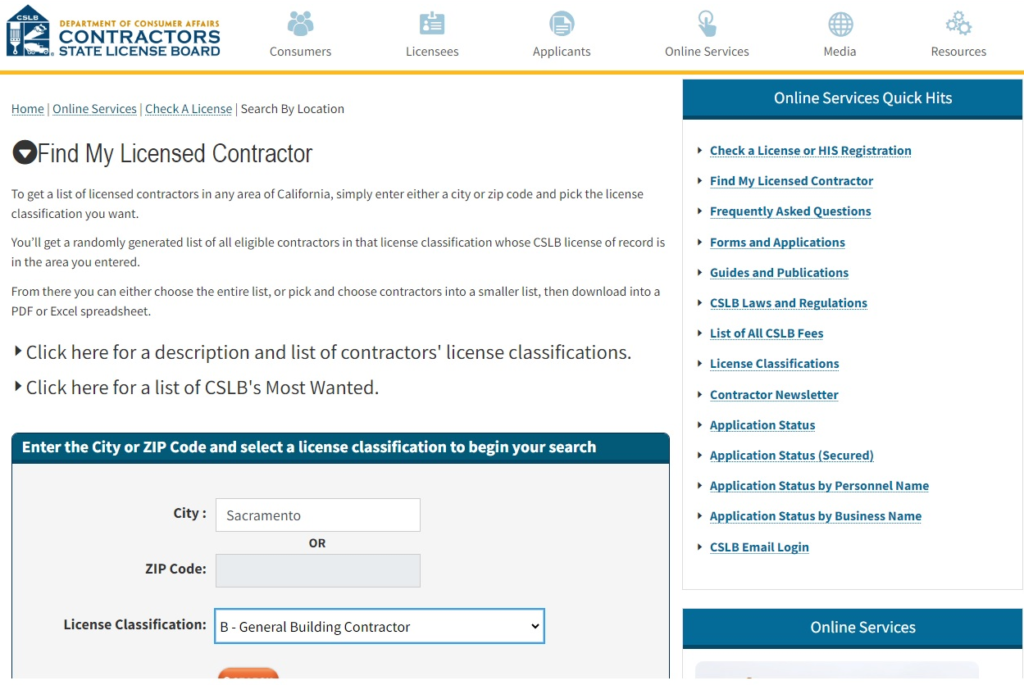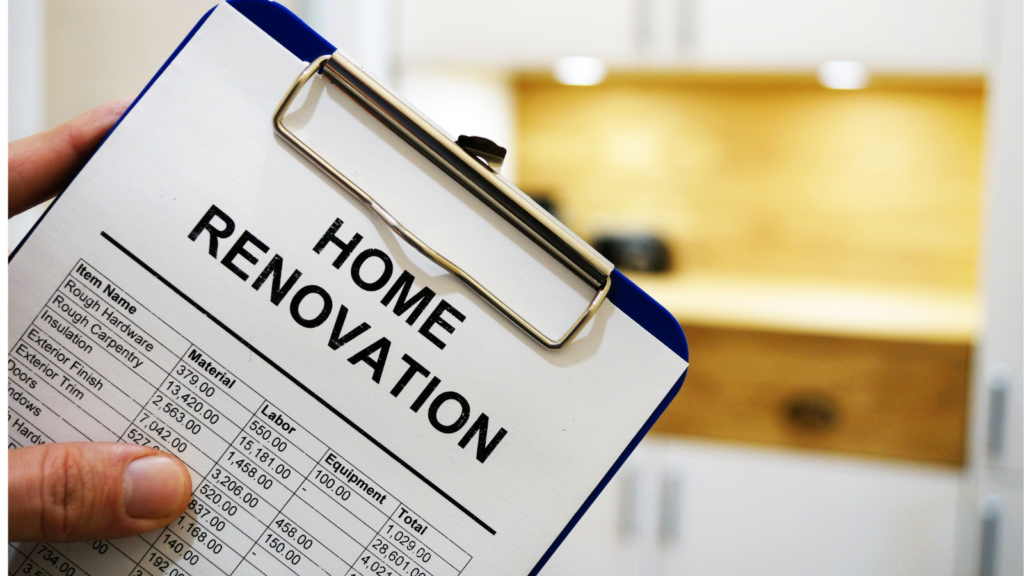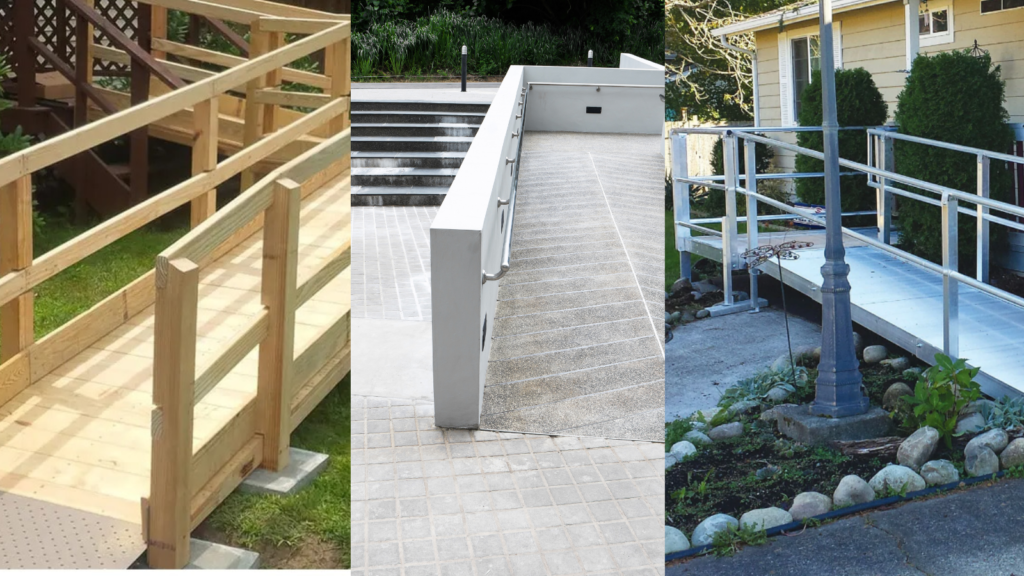It’s no secret that as we age the way we move through our spaces can change, considerations regarding navigating spaces can also be true for people with disabilities at any age. Making our homes accessible is one of the most important investments we can make. Hiring a reliable and skilled contractor can make all the difference in ensuring that your project is completed smoothly, within budget, and to your satisfaction.

Define your project requirements:
Before beginning your search for a contractor, it is vital to clearly define your project requirements. Consider the scope of work, specific details, desired outcomes. Having a clear vision of what you want to achieve and communicating effectively with potential contractors ensures you will receive accurate estimates. Understanding your rights and role as a consumer is also vital, we highly recommend checking out these great resources for additional checklists.
- What you should know before hiring a contractor, available through https://www.cslb.ca.gov/
- 10 Tips to Help Make Your Home Fall-Proof and Hazard-Free brought to you by AARP
- Fall Prevention Assessment Guide brought to you by Homesafety.net
Seek recommendations and references:
One of the most reliable ways to find a reputable contractor is through personal recommendations. Seek recommendations from friends, family, and neighbors who have had successful experiences with contractors in the past. Don’t forget Independent Living Centers (ILCs) and Aging and Disability Resource Centers (ADRCs) often can refer reputable local contractors and vendors who specialize in home accessibility modifications. Additionally, ask the contractor for references from their previous clients. Contact these references to gather insights into the contractor’s work quality, reliability, and professionalism. The Better Business Bureau and Department of Consumer Affairs Contractor State License Board (CSLB) offer extensive lists of resources for locating a licensed contractor in your area. In addition you can use websites designed to help search for contractors like Angi and Thumbtack.

Verify licenses and insurance:
Ensure that the contractor you hire is licensed, bonded, and insured. Licenses indicate that the contractor has met specific professional requirements and regulations. Insurance is essential to protect both parties in case of accidents or property damage during the project. Request copies of their licenses and insurance certificates, and verify their validity with the relevant authorities and insurance providers. You can use the CSLB’s Check a License Tool here.
Request the contractor’s certificate of insurance (COI) containing the insurance company’s name, policy number, and policy limits. Contact the insurance company to confirm coverage and ensure the policy is active. If the contractor lacks insurance, you could be held responsible for any accidents on your property.
Conduct thorough interviews:
Look for contractors with significant experience in similar projects and inquire about their expertise, training, and relevant certifications. During the interviews, assess their approach to work, project timeline, and how they handle unforeseen challenges. Inquire about the size of their crew and availability to ensure they can meet your project’s requirements. Trust your instincts and choose a contractor who demonstrates good communication skills and professionalism. You can also, request to see samples of the contractor’s previous work. This will give you an idea of their craftsmanship, attention to detail, and style. Visit completed projects whenever possible or ask for photographs. This will help you determine if their work aligns with your expectations and aesthetic preferences.

Obtain multiple bids:
Obtain detailed bids from at least three different contractors for an accurate comparison and for goodness sake get it in writing! The bids should include a breakdown of costs, materials, labor, and a projected timeline. Be careful of significantly low bids as they might indicate low quality, hidden costs, and sometimes may even be a tip off that a contractor may not be licensed. Conversely, excessively high bids may not necessarily guarantee the best outcome. Compare bids carefully, taking into account the contractor’s reputation, experience, and the overall value they offer.
Be realistic about your budget:
Many people can experience sticker shock after receiving an estimate for home improvements or home modifications. So it’s important to discuss what options you have with your contractor. Be sure you carefully review bids before making a decision. What you may have in mind as a solution to a problem may differ from your contractor. If you are requesting to install a ramp for better accessibility to your front entrance; the estimate for a wooden ramp is going to differ from one made of concrete, or a modular ramp made of aluminum. If you find that you may have originally bitten off more than you can chew, take the time to reassess and prioritize your needs.

- Consider low-cost alternatives to pricier line items: The types of materials you select matter, and the labor associated to installing and maintaining them can make a difference.
- Scale back the size of the project: Cut back the square footage of a renovation project to significantly decrease the expense or consider completing a larger project in phases.
- Reuse old items until a later date: Accessories like light fixtures and kitchen hardware can be updated after you’ve saved more money. They’re simple replacements down the road that will save you money in the short-term.
Get a written contract:
Once you have chosen a contractor, ensure that you have a written contract in place. The contract should include project details, timelines, payment terms, and any other pertinent information. Review the contract thoroughly before signing and clarify any doubts or concerns. A well-drafted contract protects both parties and provides a clear roadmap for the project.
Keep a Job File:
Staying organized is essential to the success of any home project. Keep track of all receipts, contracts, estimates all in one place. Your file should also contain before and after photos, any change orders, plans and specifications, bills and invoices, canceled checks, and certificates of insurance and any letters, notes, or correspondence with the contractor.
Taking the time to find a reliable and skilled contractor will save you time, money, and potential headaches in the long run. Remember, thorough research and careful consideration are key to ensuring a smooth and successful collaboration with your chosen contractor.




